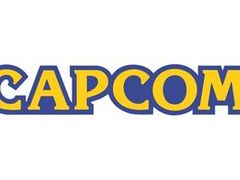Video Gamer is reader-supported. When you buy through links on our site, we may earn an affiliate commission. Prices subject to change. Learn more
Capcom has defended the popular copy protection tool SecuROM, which is generally hated among the PC gaming community, saying it is “much maligned for things that it is not necessarily responsible for”.
SecuROM, which is used by publishers and developers as an anti-piracy measure in many PC games, has drawn complaints from gamers because it imposes activation limits, re-authentication and can be difficult to remove.
However, speaking to VideoGamer.com, Christian Svensson, Capcom vice president, business development and strategic planning, defended SecuROM and said the technology itself shouldn’t be blamed for how it’s used by publishers and developers.
“We have an agreement with SecuROM,” he said. “They have been an excellent partner and I think they are, quite frankly, much maligned for things that they are not necessarily responsible for. SecuROM is as onerous or innocuous as a developer or publisher chooses to make the policies. You can decide, for example, what is the appropriate number of concurrent installs. I say concurrent as a very important distinction. You can enable replication of licenses that it becomes a concurrency issue. So instead of having five installs for life, as long as you provide a revoke tool or some other mechanism to revoke, or you have the revoke tool happen transparently via uninstall, you can install or unistall a million times, but you can only have it on three, five, seven, ten, whatever the policy you chose to hold, machines at any one time.”
“The technology itself is not the bad guy. It’s how it’s implemented and, further more, how it’s communicated or not communicated to fans. I think so many people have been beaten up so badly with let’s say more restrictive forms of DRM that they always assume the worst. That’s not always the case.”
Svensson said that much of the hatred towards the tool is the result of “a lot of miscommunication that has happened through some of the first implementations of the network authenticated versions of SecuROM”, and explained that Capcom’s policy is to allow gamers to “have access to the content you’ve got to the same extent as if you bought it on the disc and had no DRM”.
“We haven’t historically implemented phone home mechanisms,” he said. “Basically once you’ve authenticated with us upon installation you’re done.”
When asked if Capcom will continue to use SecuROM with its future PC titles, Svensson replied: “That’s our intention. We have a good, long-standing relationship with SecuROM. I don’t anticipate that going away any time soon. And to be fair we think it’s actually had really good results for us.”
Capcom has PC versions of Street Fighter IV, Dark Void and Bionic Commando in the works for 2009.
What’s your opinion of SecuROM? Is it simply misunderstood? Let us know in the comments section below.
